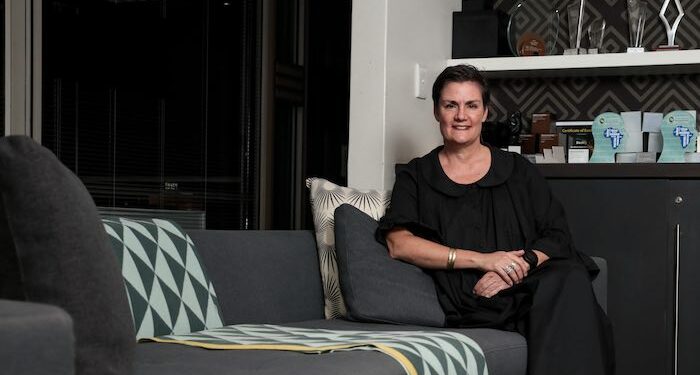Today’s women leaders in advertising have a responsibility to help ensure there are women left in the industry who can follow them to the top.
It’s sad, in a way, to be writing about making space for women in advertising now, in 2024. For decades, we’ve had all those glorious cliches around shattered glass ceilings and women in drivers’ seats. Yet, here we are, in the 21st century, having the same conversations women were having even before I started my career.
Of course, things are not entirely the same.
It wasn’t so long ago that people automatically used the pronouns “he” or “him” when referring in generic terms to a CCO or CEO. That isn’t the automatic assumption anymore. Many women have, indeed, chipped away at the cliched glass ceiling and are, in fact, sitting in the driver’s seat.
Far fewer of us, however, than we’d like to see.
Behind every successful woman
Speak to a woman who’s “made it” in advertising about her career path and she’ll probably tell you a straightforward narrative: “I joined the industry, set out to prove myself, rose through the ranks”.
But listen closely and you may pick up subtle subtext: sentences that start with “I was the first woman…” or “I was the only woman…” or “There weren’t (m)any women…”
Press for detail, and chances are you’ll find the narrative is not straightforward, but a convoluted tale of struggles overcome.
The reality is that the women we see holding leadership positions in our industry today have made it there against the odds. They have sat in boardrooms where their voices went unheard – or repeatedly interrupted.
They have had male colleagues present and take credit for work they made sacrifices to produce. And, sadly, they have been the subject of inappropriate comments, or worse.
If they hadn’t been women…
Many talented and respected women leaders will tell stories of being fortunate because a man “took a chance” on them and gave them the opportunity to prove themselves. Anyone would be grateful for an opportunity early in their career.
But one can’t help but wonder: if they hadn’t been women, would that opportunity have been viewed as a calculated risk – or just par for the course of giving a young talent the chance to show what they could do?
Another trope of the woman leader is having a reputation for being “hard” or “combative” – even belligerent. You don’t get that way from sailing through your career on talent and reputation. You toughen up because despite your talent and reputation, you still had to fight for every opportunity, accolade, and promotion that came your way.
The sad thing is that women won’t volunteer these addenda to their CVs because they’re not seen as something worth mentioning. Frustrating, yes, exhausting, absolutely, but not ‘relevant’.
That needs to change.
Open Chair Policy
When Suhana Gordhan relaunched Open Chair earlier this year, I was excited – even more so, because I was invited to be part of the committee, along with other formidable women leaders in our industry whom I respect and admire.
Open Chair is a community for women in advertising that exists to provide a safe and empowering space where young women in the industry can access mentorship and guidance and connect with a like-minded sisterhood.
One of Open Chair’s goals is to retain talented women in the industry. We realised that the industry is still so tough for young women that many leave early in their careers – or don’t even bother trying in the first place.
You can’t blame them. For starters, the representation isn’t exactly encouraging. Yes, there are women in leadership positions now. But not many. And even fewer of them are women of colour.
It’s difficult to imagine a successful outcome for yourself when so few people who look like you have achieved it. What they do see is an industry full of exceptionally talented women who don’t always make it to that top level. That sends a message that that glass ceiling, though cracked in parts, is still very much in place.
Voicing safety first
It goes beyond representation. One of our main objectives is to shape the industry into an environment that’s safe for young women, and one in which they have a voice. We may not be working in the Mad Men era any longer, but we can’t pretend that the legacy does not exist.
A microaggression is an aggression – whether it’s an inappropriate hand placement, a joke in poor taste, or a demeaning nickname.
We want to end the gaslighting in our industry. Open Chair is a place where young women can hear that they are not the problem if they don’t want shooters on awards night, and their refusal won’t earn them the reputation of not being a team player; that it’s not that they “can’t take a joke” but that the joke was disrespectful and should not have been uttered in the first place; that refusing physical contact with a colleague isn’t being stuck-up or unfriendly.
In support of speaking up
Suhana has written a Code of Conduct for Open Chair. By signing it, each of us has pledged that #OnMyWatch these and other undesirable behaviours will no longer be tolerated in our industry.
We all know how difficult it is to speak up when you’re young and just starting out. You fear victimisation. You fear your career will end before it’s begun because you’ll be labelled a troublemaker. You think this is just how things are – that it’s you who’s to blame for not being tough enough to play in the big leagues.
And when no one says anything, the silence of your more experienced industry colleagues reinforces those beliefs. We have committed to be those who speak up.
The industry needs women to look out for each other. Being a pioneer is more than just representation – it comes with a responsibility to look out for those who come after, and make their paths smoother than yours was.
Creating a legacy
I’m immensely proud of the work I’ve helped produce over the course of my career to date. But the legacy I hope to be part of creating, along with industry colleagues like Suhana and the rest of the Open Chair committee, is an industry where we no longer have to write magazine articles about the struggles of women in advertising.
I’d like to see women speaking up in meetings, confident that their opinion will be heard and respected. I’d like to see women CEOs and Exco members who don’t arrive in their positions already tired from the fight to be taken seriously.
So yes, we celebrate how far we’ve come. But the work continues.
Follow Open Chair on LinkedIn here.
Fran Luckin is chief creative officer at VML South Africa. She studied speech and drama at university but was saved from a life spent as ‘Second Extra From the Left’ by moving into advertising – which served her well: Luckin has won multiple awards, including some of the industry’s most coveted accolades. In 2022, she was named Industry Leader of the Year at the Adfocus Awards. She has an MBA from the Berlin School of Creative Leadership and is a passionate advocate of lifelong learning.















